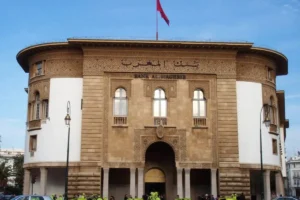Tension is brewing between Africa and the Big Three credit rating agencies — Fitch, Standard & Poor’s, and Moody’s — with the African Union (AU) accusing the agencies of unfair and ill-informed assessment of African economies. African states have had their risk profiles downgraded over the first six months of 2023, making acquiring debt more expensive.
Between January and June 2023, 13 negative rating actions, seven of which seven were downgrades and the remaining six negative changes in outlook, were assigned to 11 countries in Africa by the Big Three.
In that period, Kenya and Nigeria had their credit ratings downgraded by Moody’s Investor Service while Tunisia and Egypt had its credit ratings downgraded by both Moody’s and Fitch.
Ghana’s credit rating was downgraded by Fitch.
The AU is now exploring the feasibility of setting up an African credit rating agency as an autonomous arm that will provide alternative credit ratings to those provided by the Big Three. The continental body argues that the ratings downgrades have hurt the prospects of tapping into the global markets for cheap credit at a time when the continent is grappling with fiscal tightness.
“Unlike in the second half of 2022, when there was no single issuance of sovereign bonds, the first half of 2023 witnessed two bond issuances from Egypt and Morocco, who issued a combined $4 billion. Egypt, which now has the highest sovereign bond value outstanding in Africa at $37.5 billion, was downgraded by Moody’s and Fitch, pushing its borrowing cost high, to issue the Sukuk bond at over 10 percent,” said the AU in its seventh edition of the African Peer Review Mechanism, which focuses on sovereign credit ratings.
The AU has questioned the methodologies adopted by the credit rating agencies, arguing that they lack balance and are not comprehensive in painting a true picture of the macroeconomic landscape on the continent.
Ghana’s credit rating was downgraded by Fitch.
“Moody’s, Fitch and S&P continue to make significant errors in their ratings, yet they continue to influence global financing decisions and flow of capital. Unlike in the first half of 2022, rating actions in the first half of 2023 were predominantly negative, with no single African country being upgraded during the period. These developments reversed the optimism among investors on the international financial markets that African countries are recovering from the devastating Covid-19 economic shocks,” the AU said.
It is a view that has been shared by the United Nations Independent Expert on Foreign Debt, Prof Attiya Waris, who is calling for global action towards the regulation of credit rating agencies.
“We don’t question these credit rating agencies and I think that is where the problem starts. So, you have three private companies registered in only one country, who collect data on every country in the world and have their staff churn out assessments. These private entities make a profit out of how they rate countries and there is no global regulation around this yet the effect that they have is huge. Their ratings have an effect on countries in real time,” Prof Waris told The EastAfrican.
Source: The EastAfrican
















